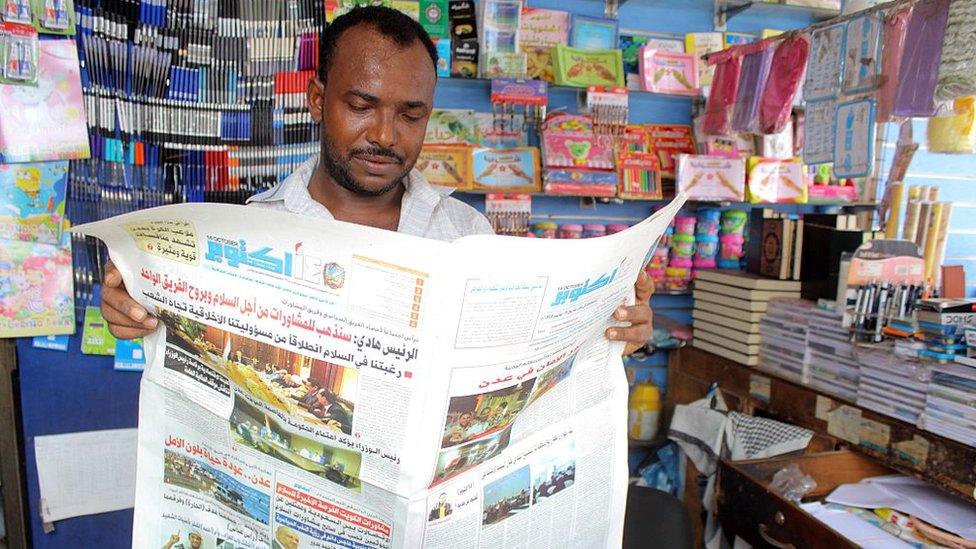Yemen media guide
- Published

Years of war have left Yemen's media landscape highly polarised. The overwhelming majority of outlets either firmly support the country's Iran-backed Houthi rebels or strongly oppose them.
This polarisation has made independent reporting in Yemen extremely rare.
The Houthi seizure of the capital in September 2014 and the subsequent outbreak of war, along with the death of former President Ali Abdullah Saleh and the end of his alliance with the Houthis in December 2017, brought massive changes in the media scene and disrupted media operations.
Saudi and Emirati military intervention on the government side has also brought the considerable media resources of both of those countries into play.
The Yemen conflict has claimed the lives of many media workers. Working as a journalist in the country generally involves risk. Journalists have been harassed and detained by all parties to the conflict.
Amidst the continuing hostilities in Yemen, satellite TV stations remain influential, although their output reflects highly partisan agendas. Each side operates its own version of the two main channels, Yemen TV and Aden TV.
The conflict has also seen some resurgence of the importance of radio.
There were 8.3 million internet users by July 2022, comprising 27% of the population (Internetworldstats.com). The sole ISP is state-run and the internet has been prone to shut down by the Houthi-controlled communications ministry. Anti-Houthi online content is filtered.
Press
Al-Thawrah, external - (The Revolution), government-owned daily, under Houthi control
Al-Yaman al-Yawm (Yemen Today) - associated with family of late ex-President Saleh
Sada al-Masirah, external - Houthi newspaper
Television
Yemen TV, external - pro-Houthi and pro-Hadi versions of the state TV are on the air
Aden TV
Yemen Today, external - private
Suhail TV, external - pro-Hadi, operates from Riyadh
Al-Saeedah, external (The Happy One) - popular entertainment-based satellite network broadcasting from Egypt
Belqees TV, external - privately owned, broadcasts from Istanbul
Yemen Shabab, external - privately owned, operates from Amman and Istanbul
Radio
Republic of Yemen Radio, external - state-run; Sanaa-based operations are under Houthi control
News agency/websites
Saba news - Yemen's official government news agency. There are pro-Houthi, external and pro-Hadi, external websites - the latter was seized by UAE-backed Southern Transitional Council (STC) forces in 2021
Marebpress, external - popular privately-run news site
Al-Tagheer, external - (Change), privately-run news site